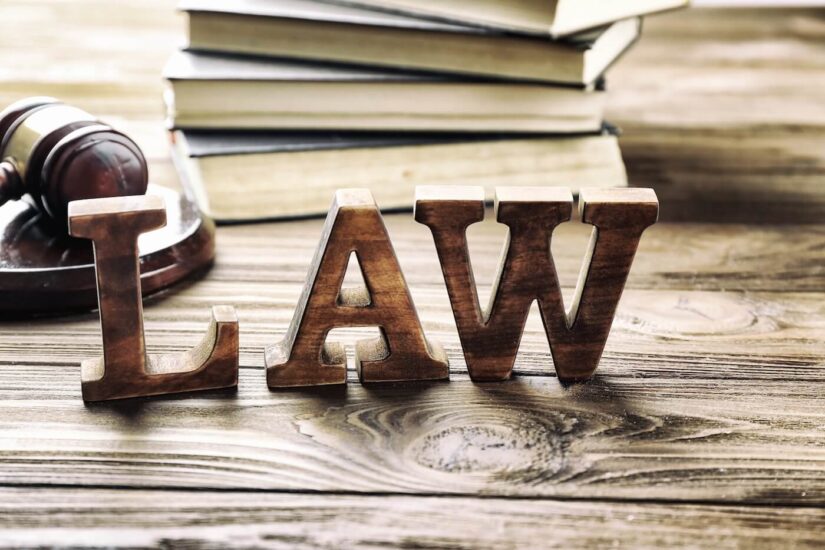
July 8, 2025
Case Background: Custodial Interrogation and an Invocation of Rights
The Luckenbach case began with a tragic crime and an unusual surrender. James Joseph Luckenbach was suspected of a double homicide in Horseshoe Bay, Texas. Days after the incident, Luckenbach arrived at the Burnet County Sheriff’s Office to turn himself in. Crucially, he did not come alone – a friend named Jeff Mallett, a former law enforcement officer, had convinced Luckenbach to surrender by promising that an attorney was on the way to meet him at the station. In fact, Mallett later admitted he lied about securing a lawyer as a ruse to get his friend to come in. Upon arrival, Luckenbach repeatedly stated that he had an attorney and wished to wait for counsel before talking to police. Mallett even told deputies on the scene that “James has got representation” and that Luckenbach wasn’t going to say anything to investigators.
Despite these clear signals, officers detained Luckenbach and proceeded with their process. He was handcuffed “for safety,” escorted inside, and read his Miranda warnings (the familiar advisement of the right to remain silent, right to an attorney, etc.). At this point, Luckenbach was in custody (even though officers told him he was “detained” and not “under arrest”) and had already indicated he wanted a lawyer present. However, law enforcement had learned from Mallett that the attorney story was a sham – a “ruse” used to coax Luckenbach into turning himself in. One Texas Ranger remarked that although Luckenbach believed a lawyer was coming, the burden was “on him to invoke” and until he explicitly asked the Ranger for a lawyer, the interrogation could proceed.
Officers then questioned Luckenbach about the murders. At one point, a Ranger suggested to him that giving a statement could “better [his] situation,” implying that cooperation might help him. Under this pressure – and without an attorney present – Luckenbach made incriminating statements about the crime. Those statements would later become the center of a legal firestorm.
Ultimately, Luckenbach was charged with capital murder of multiple persons (a capital felony under Texas Penal Code § 19.03). To avoid a potential death sentence, he entered into a plea agreement: he pleaded guilty to capital murder in exchange for the State waiving the death penalty, and he was sentenced to life in prison without parole. Importantly, as part of this process, his defense team had filed a pretrial motion to suppress the statements he gave to police, arguing they were obtained in violation of his constitutional rights. The trial court denied that motion, finding (1) that Luckenbach was not truly “in custody” until later in the interrogation, and (2) that he hadn’t unambiguously requested a lawyer during the Ranger’s questioning. With no relief at the trial level, Luckenbach’s plea still preserved his right to appeal the suppression issue. He did so, and the case went up to the Third Court of Appeals.
The Appellate Court’s Decision: Fifth Amendment Protections First
On June 27, 2025, the Third Court of Appeals (sitting in Austin) delivered its opinion in Luckenbach v. State, and it sided with the defendant on the critical Fifth Amendment issue. The appellate court closely reviewed the evidence from the custodial interrogation (including video recordings and testimony) and concluded that the trial judge’s findings were not supported by the record. In plain terms, the appeals court determined that Luckenbach was indeed in custody when he first came to the station, and that he had effectively invoked his right to counsel – or at the very least, he was clearly signaling that he did not wish to talk without a lawyer present. Continuing to interrogate him under those circumstances (and especially suggesting that talking could help him) violated his Fifth Amendment rights.

To understand the significance: the Fifth Amendment to the U.S. Constitution guarantees that no person “shall be compelled in any criminal case to be a witness against himself.” In the landmark case of Miranda v. Arizona, 384 U.S. 436 (1966), the U.S. Supreme Court established that when a person is in police custody, officers must inform them of their rights – the right to remain silent and the right to an attorney – before questioning can lawfully proceed. If the suspect clearly invokes one of those rights (for example, by saying “I don’t want to talk without a lawyer”), the interrogation must stop unless and until an attorney is present. Any statement obtained in violation of these rules is generally inadmissible in court.
These principles are often referred to as Miranda protections, and they apply to all state and federal criminal cases. In fact, Texas has codified these warnings and protections in statute – Article 38.22 of the Texas Code of Criminal Procedure sets out the same requirements: a suspect in custody must be clearly warned of his rights, and any waiver of those rights must be knowing, intelligent, and voluntary.
In Luckenbach’s situation, the Third Court of Appeals found that none of these safeguards excused what happened. The opinion notes that by the time the Texas Rangers started questioning him, any reasonable person in Luckenbach’s position would have felt they were under arrest (he had been handcuffed, taken into a back interview room, and was not free to leave). This meant he was in custody and entitled to full Miranda protections. The record also showed Luckenbach repeatedly indicated he wanted an attorney or believed one was coming, which the court viewed as an invocation of his right to counsel that should have halted any further questioning. Moreover, a law enforcement officer’s suggestion that speaking might “help” him was precisely the kind of coercive tactic that Miranda rules are designed to prevent.
In short, the appellate court held that Luckenbach’s statements were obtained in violation of his Fifth Amendment rights and should have been suppressed.
As a result, the Third Court of Appeals took the dramatic step of reversing the conviction. In its conclusion, the court explicitly reversed the trial court’s denial of the motion to suppress and overturned Luckenbach’s guilty plea conviction, remanding the case back for further proceedings. This means Luckenbach will have the opportunity to withdraw his plea, and the State would have to prosecute the case without the improperly obtained confession. The decision sends a clear message: Texas courts will not allow a conviction to stand when it’s based on evidence obtained after a suspect invoked the right to remain silent or to counsel and those wishes were not fully respected.
Reinforcing Legal Safeguards in State and Federal Defense
One important aspect of the Luckenbach ruling is how it reinforces that constitutional safeguards apply equally in state and federal cases. The Fifth Amendment and the Miranda rule originate from federal law (the U.S. Constitution and Supreme Court precedent), and they bind every state. Texas, through provisions like Article 38.22, has mirrored these protections in its own laws. This means that whether you are facing charges in a Texas state court or in federal court, law enforcement must honor your Miranda rights during any custodial interrogation. Statements taken in violation of these rights are inadmissible in state proceedings and likewise cannot be used against you in federal court (since federal courts also follow the Miranda rule under the Fifth Amendment).

The appellate court’s decision highlights that even a confession to a serious crime like capital murder will be thrown out if obtained unconstitutionally. This should give confidence to defendants and their attorneys that courts take these rights seriously. State and federal criminal defense attorneys regularly invoke Miranda and related laws to protect clients. For example, if a client in Houston gives a statement to police or federal agents without proper warnings or after asking for a lawyer, a motion can be filed to suppress that statement (under both Texas Code of Criminal Procedure 38.23, the exclusionary rule for illegal evidence and the federal exclusionary rule). The Luckenbach case simply underscores that judges will grant such remedies when the facts warrant. It is a reassuring example of the system policing itself – even post-conviction – to uphold constitutional standards.
The Napier Law Firm’s criminal defense practice (both in state and federal cases) is built on vigorously enforcing these safeguards. We understand that Miranda rights are often the first line of defense for someone accused of a crime. If there is any sign that police failed to Mirandize a client, continued questioning after a client invoked their rights, or coerced a statement, we leverage state and federal law to challenge that evidence. The goal in every case – whether it’s a local Houston matter or a federal investigation – is to make sure our client’s Fifth Amendment rights are protected at every step.
Key Takeaways for Anyone Facing Criminal Charges
Always assert your rights clearly
If you are being questioned by police and you want a lawyer, say so unambiguously. For example, you can say “I will not answer any questions without an attorney present.” This clearly tells officers that questioning must stop under Miranda. In Luckenbach’s case, he indicated he had a lawyer and didn’t want to talk without him – yet officers tried to claim he hadn’t formally asked them for a lawyer. Don’t leave any doubt: if you intend to exercise your right to silence or counsel, state it plainly.
Do not be misled by police tactics
Law enforcement officers are trained in interrogation strategies. They may imply that “things will go easier” if you talk, or suggest that getting your side of the story will help you. They may also use deception – as seen when Luckenbach’s friend falsely promised an attorney would be present. Understand that police cannot offer leniency in exchange for talking, and any suggestion that you will help yourself by confessing is typically a tactic. The Fifth Amendment exists because talking without a lawyer usually does not help you; it helps the prosecution. Stay firm in invoking your rights, no matter what promises or pressures are put on you.
Miranda rights apply as soon as you are in custody
The protections aren’t just for formal arrests – if, under the circumstances, a reasonable person in your shoes would feel they’re not free to leave, you’re likely in a custodial interrogation situation. Officers often use phrases like “you’re not under arrest, just detained” while still restraining your freedom. Don’t get caught up in the label. If you’re being held and questioned, you have the right to remain silent and ask for a lawyer right then and there.

If you spoke without a lawyer, all is not necessarily lost
Many people make statements to police before consulting an attorney – often because they felt scared or were misled about the consequences. The Luckenbach ruling shows that even if you did talk to the authorities, a court can later decide those statements cannot be used against you if your rights were violated. An experienced criminal defense attorney can review the circumstances and file a motion to suppress such evidence. It is critical that you tell your attorney exactly what happened during any police interaction. Even a small detail (for instance, an officer promising something or ignoring your request for counsel) could make the difference in getting a confession thrown out.
Invoke early, invoke often
You cannot invoke your rights too early. From the moment law enforcement accosts you, you can (and should) invoke your right to remain silent and request an attorney. If you invoke and questioning continues, remain silent. Do not re-engage with officers or “chat” after you’ve invoked, as that could be argued as a waiver. In Luckenbach’s case, he did the right thing by repeatedly mentioning his attorney; it strengthened his appellate argument that he never willingly waived his rights. You have the absolute right to stand firm, no matter how much officers persist.
Protecting Your Rights: Criminal Defense in Houston
At the end of the day, Luckenbach v. State is more than just a procedural win on appeal – it’s a reminder of why we have Miranda rights and how vital they are in criminal defense. Every Houston resident (or Texan, or American) has these rights, and they are a cornerstone of our justice system. Invoking your rights is not about “looking guilty”; it’s about ensuring you are treated fairly and not rushed into a mistake that could cost you your freedom. As this case demonstrates, even a seemingly voluntary confession can be thrown out if it wasn’t obtained the right way.
For those in the Houston area, The Napier Law Firm is here to stand between you and any violation of your rights. Our team has extensive experience in criminal defense (from drug charges and assaults to serious felonies) and in federal defense of charges brought by U.S. agencies. We know the law, and we know the tactics officers use. Most importantly, we know how to assert and defend your constitutional protections aggressively at every stage of a case.

Stand Up for Your Rights – We’re Here to Help
The appellate victory in Luckenbach sends a clear signal: courts will uphold your constitutional rights when pushed, but it’s critical to have a lawyer who will push for those rights on your behalf. If you believe your rights were violated – for example, if you were questioned in custody without being Mirandized or after you asked for a lawyer – you should speak to a defense attorney as soon as possible. The Napier Law Firm is ready to help you assess your situation and fight for justice.
Your next step: Contact The Napier Law Firm today if you or a loved one are facing criminal charges in Houston or anywhere in Texas. Let us evaluate whether police or investigators crossed the line in your case. Our firm is committed to providing the strong, constitutionally rooted advocacy that every individual deserves. Protect your rights and your future – reach out now for a free consultation.